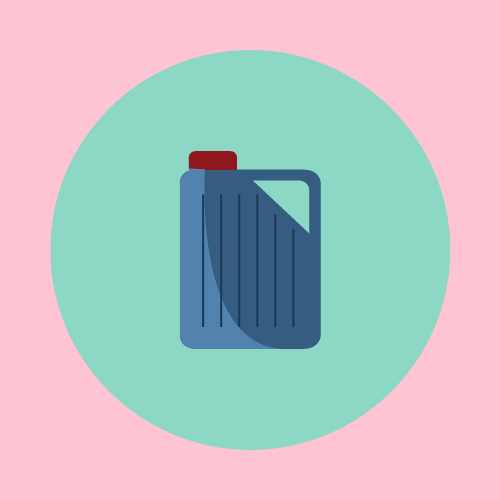Introduction
Fleas are a prevalent issue for dogs and their owners worldwide, as these tiny, wingless parasites thrive in warm and humid environments, feeding on the blood of their hosts. Dogs are particularly susceptible to flea infestations due to their furry coats and social nature. To combat these pests, numerous flea treatment methods exist, from over-the-counter products to prescribed medications. However, an unconventional and potentially dangerous method has emerged: using motor oil as a flea killer. This practice has gained attention, leading many to question whether it’s a myth or a reality, and if it poses risks to the health of dogs.

Understanding Fleas
Understanding the flea life cycle is crucial in effectively combating infestations. Fleas develop through four stages: egg, larva, pupa, and adult. Adult fleas feed on their host, leading to various health issues in dogs, including skin irritation, allergies, and anemia in severe cases. To prevent and control flea infestations, a comprehensive approach is necessary, involving regular grooming, topical treatments, oral medications, and environmental management to eliminate fleas at all life stages and minimize the risk of future infestations.
The Motor Oil Myth
The origins of motor oil as a flea treatment can be traced back to anecdotal evidence and traditional remedies, with some pet owners claiming that it’s effective in killing fleas. The apparent success of motor oil in eliminating fleas may be attributed to its viscosity, which can suffocate the parasites. However, using motor oil on dogs poses significant risks and consequences, including skin irritation, chemical burns, and potential toxicity due to ingestion or absorption through the skin. The dangers far outweigh any perceived benefits, making it crucial for pet owners to opt for safer, proven alternatives in flea treatment and prevention.
Risks of Using Motor Oil on Dogs
Motor oil is a complex mixture of hydrocarbons, additives, and other chemicals, which are specifically designed to lubricate and protect engines, rather than for use on animals. When applied to a dog’s skin, motor oil can cause irritation, inflammation, and even chemical burns, particularly in sensitive areas. Additionally, motor oil is toxic and can lead to poisoning if a dog licks or ingests it, causing severe health issues or even death. Furthermore, the improper use and disposal of motor oil can have a negative environmental impact, contaminating soil and water sources, and posing a threat to wildlife.
Safer Flea Treatment Alternatives
There are numerous safe and effective flea treatment options for dogs that pet owners can choose from. Topical treatments, such as spot-on treatments, flea shampoos, and flea sprays, can be applied directly to a dog’s skin and fur, targeting fleas at various life stages. Oral flea treatments, available in tablet or chewable forms, provide an alternative that works systemically to kill or prevent fleas. Flea collars offer a long-lasting solution, releasing active ingredients that repel or eliminate fleas. Additionally, natural flea treatment methods, like diatomaceous earth or essential oil blends, provide a more holistic approach for those seeking chemical-free alternatives.
Prevention Is Better Than Cure
Maintaining a flea-free environment for dogs involves a multi-faceted approach. Regular grooming, including brushing and bathing, helps to remove fleas and their eggs, while also promoting a healthy coat. Flea control in the home environment is essential, involving thorough vacuuming, washing pet bedding, and using flea-killing products as needed. Additionally, flea control in the yard plays a crucial role in preventing infestations. Keeping grass trimmed, removing debris, and treating outdoor areas with pet-safe insecticides can help minimize the presence of fleas and reduce the likelihood of re-infestation.
What to Do if Your Dog Is Exposed to Motor Oil
If your dog is exposed to motor oil, it’s essential to act quickly to minimize potential harm. For immediate first aid, remove any remaining oil from your dog’s fur and skin using a gentle, pet-safe soap and warm water. Be cautious to avoid getting the oil in their eyes, ears, or mouth. In the event of ingestion or severe skin exposure, seek veterinary assistance immediately, as motor oil can be toxic and lead to poisoning or severe skin irritation. Long-term effects and recovery depend on the extent of exposure and the promptness of intervention. Following your veterinarian’s advice and providing supportive care is crucial for your dog’s recovery and overall well-being.
Summary
In summary, using motor oil as a flea treatment for dogs is a dangerous and potentially harmful practice. It can cause skin irritation, chemical burns, and toxicity if ingested. Instead, pet owners should opt for safer, proven alternatives, such as topical treatments, oral medications, flea collars, and natural methods. Maintaining a flea-free environment through regular grooming, home and yard care is essential to prevent infestations. If a dog is exposed to motor oil, prompt action and veterinary assistance are crucial to minimize harm and support recovery.
Frequently Asked Questions (FAQS)
A. Can motor oil really kill fleas on dogs?
Motor oil may appear to kill fleas due to its viscosity, but it’s a dangerous and harmful method that should be avoided.
B. What are the dangers of using motor oil on dogs?
Using motor oil can cause skin irritation, chemical burns, and toxicity if ingested, posing serious risks to a dog’s health.
C. What should I do if I accidentally applied motor oil to my dog?
Immediately wash off the oil with pet-safe soap and warm water, avoiding the eyes, ears, and mouth. Seek veterinary assistance if ingestion or severe skin exposure occurs.
D. What are safer alternatives to motor oil for flea treatment?
Safer alternatives include topical treatments, oral medications, flea collars, and natural methods such as diatomaceous earth or essential oil blends.
E. How can I prevent fleas on my dog in the future?
Prevent fleas by maintaining regular grooming, thorough home, and yard care, and using proven flea treatment and prevention methods.

Doctor of Veterinary Medicine (D.V.M.) at Nation Taiwan University,Master of Science (M.S.) in Biomedical Engineering at National Taiwan University of Science and Technology




